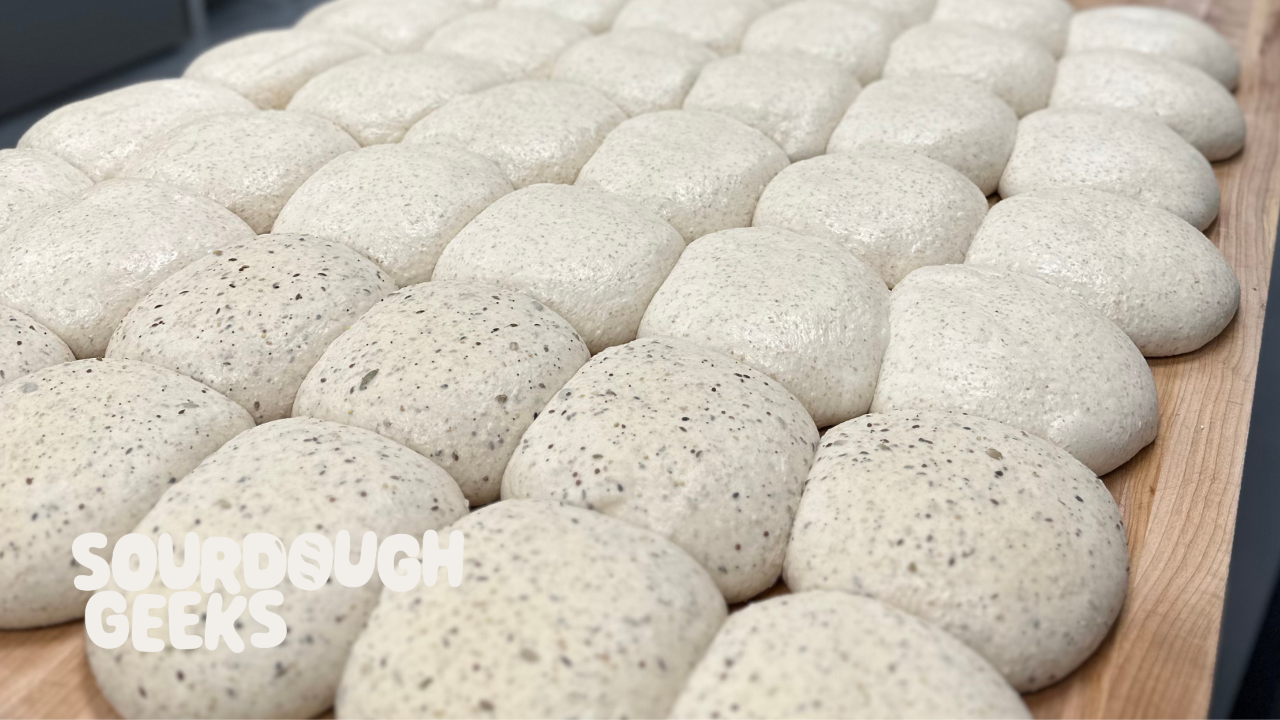
Consistency First, Growth Second
So, you’ve decided to become a cottage baker—or maybe you’ve already begun selling and are now ready to scale your operation. That next step can feel daunting, but one factor will make the entire process far more manageable: consistency.
Consistency is the benchmark by which we measure proficiency in any craft. It’s how we know when we’re ready to grow, and it removes the worry, stress, and guesswork from production. When you bake with consistency, you can devote your physical and mental energy to the task itself, rather than troubleshooting and second-guessing.
But consistency isn’t just a result—it’s also a mindset, a process, and a commitment to refinement. To achieve consistent results, you must commit to consistent actions. That starts by setting manageable goals with reasonable expectations, then repeating them until mastery is achieved.
The Basics
Before you attempt advanced formulas with high-hydration doughs or unique flours and inclusions, nail the fundamentals. Truly master a simple recipe first. Sourdough baking isn’t about following a recipe; it’s about understanding a framework. Once you can repeat a basic recipe reliably, change one variable at a time and work with that until you’ve reached consistency again.
Learn baker’s math—even if it feels intimidating. As your production grows, understanding baker’s percentages becomes essential. Everything from feed ratios to scaling batch sizes, adjusting hydration, or calculating inclusions becomes second nature when you’re fluent in the math behind the dough. It’s the language of baking at scale.
Don’t Skip Steps
As tempting as it may be to make big leaps, baby steps are your friend. Want to jump from two loaves to twenty? Start with four. Then try eight. Then twelve. You’ll gradually begin to understand how dough behaves differently in larger volumes: fermentation becomes more efficient (and faster), and the physical properties of the dough change too.
Interestingly, larger batches of dough are often easier to work with—gravity helps stretch gluten, and dough behavior is more predictable. But there’s a tipping point where the dough becomes harder to handle. Working up gradually gives you a feel for when to divide dough into manageable portions for bulk fermentation. It also increases your reps with shaping and scoring in a way that’s sustainable and productive.
Minimize Variables
Minimizing variables is always a good idea, but at scale, it becomes non-negotiable. If you’re storing your starter in the fridge, transition to feeding it daily—at least once, ideally twice. Even if you only bake once a week, your starter and your bread will benefit. A few minutes of daily maintenance is a lot less stressful than dealing with starter issues before a big bake.
Start accounting for temperature—and if possible, start controlling it. Starters thrive at stable temperatures, and your bread production will too. Maintaining a consistent fermentation environment helps turn your baking into clockwork instead of guesswork, and your stress levels will drop accordingly.
Use the same formulas. Mix the same way. Use the same containers with the same dough weights. Ferment at the same temperatures. Shape with the same technique. Proof in the same bannetons. When you create a highly repeatable process, any deviation becomes easier to spot—and easier to correct. You’ll develop confidence and gain the ability to make sound judgment calls in real time.
The Payoff
This is how professional bakeries operate. And the more you incorporate these principles into your cottage baking, the smoother your growth will be. You’ll build the confidence to meet production demands, and your customers will come to expect—and receive—a consistently excellent product.
Consistently good will always beat occasionally great followed by occasionally not. And consistently great only happens when consistently good becomes second nature.
Consistency, in the end, isn’t just about repeatable outcomes—it’s about peace of mind, professionalism, and the freedom to grow.

